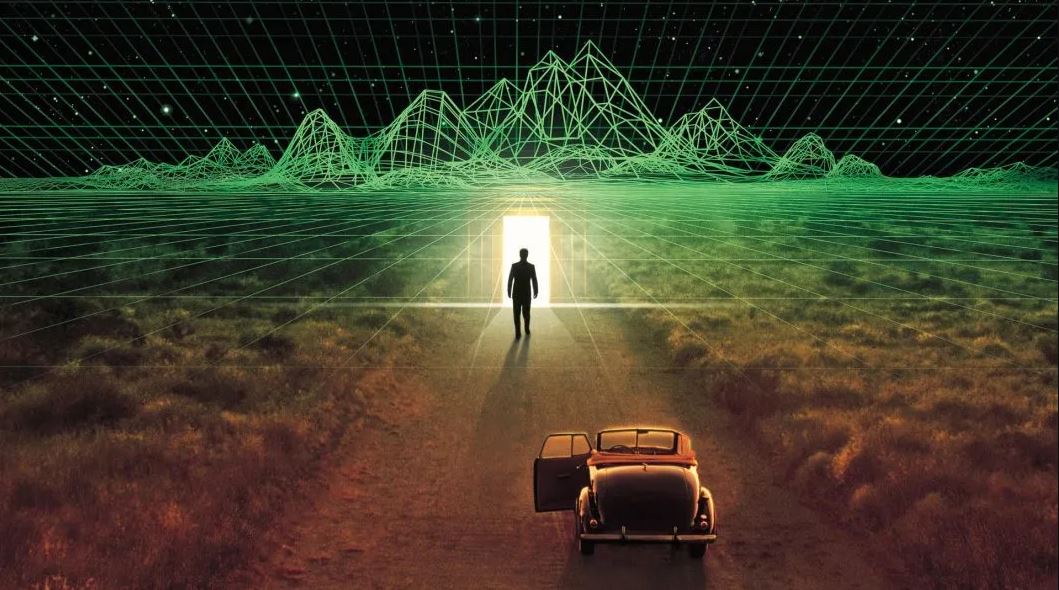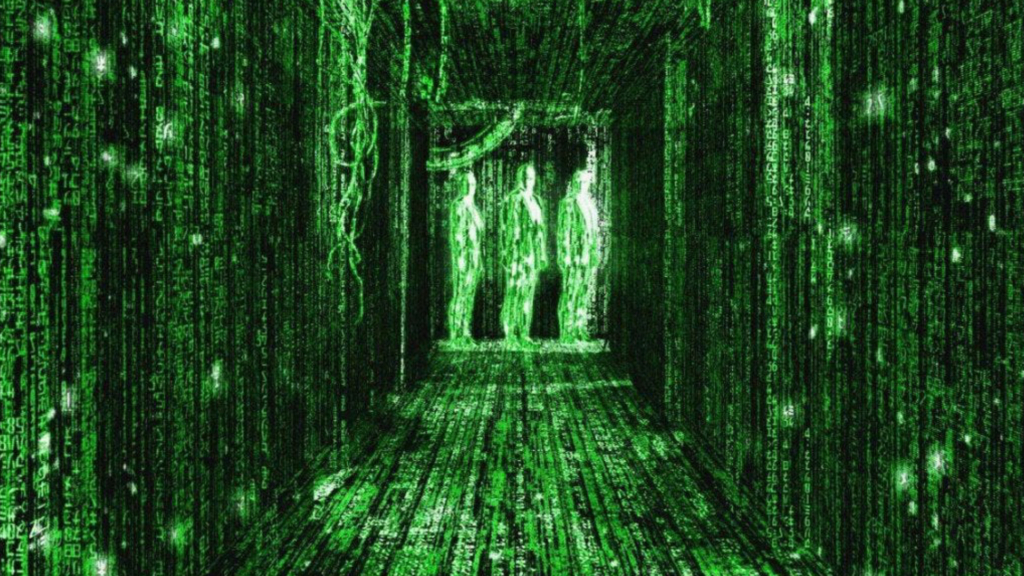The masses want to believe in it – in fact, they believe that what we see around us is an imitation of a superior person or something created for us.
John Gabor
03.10.2023 – Many people believe that one day a great awakening will come, and all the absurdities (from poverty to epidemics to wars) we see around us will turn out to be nothing more than simulations. This theory has countless old and new roots, stemming from the fact that our world has always been somewhat of a cesspool of human stupidity, greed, and cruelty, and it's not always a good thing to be in. People are receptive to simulation theories (and, let's face it, to some extent also to religions) because of a desire to break out of them. We don't want to accept that the world is as it is, nor that we can do anything about it ourselves. A little bit of everyone. The common people want to assert themselves by trampling each other, politicians by trampling others, and rulers by trampling everyone else.
So, in contrast, no ecological balance, moral code, moral stance or anything else is sacred.
We want to think the world has become an unpleasant place, but in reality it is not real, or – if we are religious – we trust that only our earthly dustpan suffers before eternal life, that perhaps there will be a next life that will be better. In both cases, so-called simulation theories.

Source: Freebeck
These are generally hypotheses that the reality we live in is just part of a simulation created by a conscious or technological entity. This concept has appeared in history in different forms and contexts. It is encountered mainly in philosophical treatises or science fiction literature and films. Some of them are bigger than you think. It's worth taking a look at the short characterizations below, and then we'll discuss how sloppy it is that I come to the same conclusion and that they ultimately stem from the same source.
Simulation theories in brief
Descartes's demon: The French philosopher René Descartes (1596-1650) believed that it is possible that there is an evil demon or a malicious entity that manipulates our senses and affects our experiences, such that nothing is certain in our reality. With this theory, he referred to examining the limits of human perception.
Boltzmann brain: The Austrian physicist Ludwig Boltzmann (1844-1906) developed the theory that the world is modeled by a system of random particles. From this perspective, brains are sometimes accidentally created that can access virtual reality and perceive it as real. This approach is part of the anthropic principle, which states that the possibility of observing the physical universe must be compatible with the creation of conscious life observing it.
Universe simulation hypothesis: Swedish philosopher Nick Bostrom (1973-) posits that in the future, civilizations with advanced technology will be able to simulate entire universes, including life and consciousness. In this case, there is an ancient civilization that mimics our reality.
Matrix theory: In the name of decryption, it is inspired by the Matrix films, so this is perhaps the newest and most popular example of simulation theories. In the film, not only people's bodies but also their consciousness are captured, the latter existing in an artificially created reality that is also controlled by machines. This idea plays with the concept of simulating reality.
Physical and mathematical theories: Some physicists and mathematicians argue that the world may be a kind of mathematical computer or quantum mechanics. These theories study the connections between quantum physics, information theory, and simulation theories.
It is important to emphasize that these hypotheses are just speculation, and there is currently no concrete evidence that you are actually living in a simulation! At the current scientific level, there are no data or experimental results available that would clearly support either theory. So, at the moment they are nothing more than controversial philosophical and scientific topics.
But what do simulation theories have in common?
If you look at it, each hypothesis summarized above has its own common point which is the existence of a superior entity. Obviously, its existence, just because so many people want to believe in it, is a shame. This is mainly because it is a very ancient reaction: it is an echo of the ancient Greek myths that founded our culture, and then the religions that developed later. If you remember it from literature class: divine intervention (deus ex machina), which Homer actually consciously used to persuade the reader in the Odyssey, ten thousand years ago. So, from then on, each philosophically inspired story will include (one or more) omnipotent gods, bloodthirsty demons, ancient alien civilizations, and artificial intelligence. Our society is built on a foundation of written, narrated, preserved and transmitted stories. So everything can be traced back to the fact that we interpret our culture from the point of view of the existence of a Supreme Being. Since we have been doing it the same way for thousands of years, from generation to generation, there is nothing unexpected in the fact that everyone somewhere is searching for the common element as they try to formulate the meaning of their lives.

Source: Medium.com
If it is a computer simulation, who is the programmer?
By the way, the most scientifically analyzed hypothesis today is Bostrom's theory mentioned above. Among them is David Chalmers, a professor of philosophy at New York University In the study He also described the president responsible for our hyper-realistic simulation as being “programmed into the next universe.” We humans might describe him as a kind of god, but not necessarily in the traditional sense.
“Maybe he's just a teenager hacking into a computer with five universes running in the background. But he could also be an omniscient and omnipotent person.
Simulation theory is based on the argument that philosophers (again: trained on the machine that underlies our culture) have been making for centuries: “We can never know whether what we see is real.” “Just because we perceive the world to be ‘real’ and ‘material’ does not mean it actually is.” He cites Built into this is Ridwan Verkat, author of Simulation Theory. The technology entrepreneur believes that the results of quantum physics may cast doubt on whether the physical universe is a real place. The more scientists search for matter in the physical world, the more certain they become that it does not exist.
Lesson learned: Nothing is as it seems, especially not reality…
…at least from what we think based on our history, traditions and religions. If we take it this way, today's popular simulation theory (assuming technological or artificial intelligence in the background) is the religion of irreligious materialists. They also want to believe in something that makes sense of the whole world, but they don't want to understand it through the filter of politicized churches that have been tried and tested over thousands of years and appear before their eyes.
Theoretical physicist David Bohm formulated this idea in the most conceptual way. It's an embarrassing thought, and it's convenient for us to understand what's happening here as a result. Please frame it well and put it on the desk:
“Truth is what we believe to be true. What we believe to be true is what we believe. What we believe depends on our perceptions. What we perceive depends on what we seek. What we seek depends on what we think. What we think depends on what we perceive. What we perceive It is determined by what we believe. What we believe is what we believe to be true. So what we believe to be true is our reality.”
That's it.
Read this also:
Do you want to delete yourself and your stuff from the Internet? “We'll show you how to do it!”












































